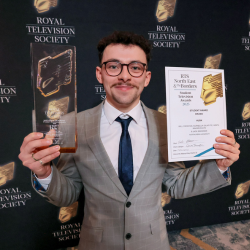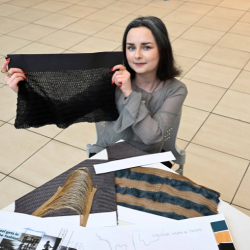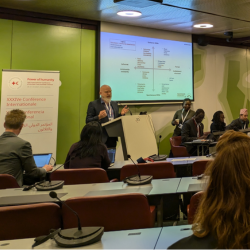-
Study
-
Quick Links
- Course Search
- Unlock Your Potential
- Still time to Apply
- Higher and Degree Apprenticeships
- Continuing Professional Development
- Book an Open Day
-
Undergraduate
- Course Search
- Application Guides
- UCAS Exhibitions
- Foundation Years
- Fees and Funding
- School & College Outreach
- Information for Parents
-
Postgraduate
- Course Search
- Application Guide
- Postgraduate Research Degrees
- Flexible Learning
- Fees and Funding
- Change Direction
- Register your Interest
-
Student Life
- Students' Union
- The Hub - Student Blog
- Accommodation
- Northumbria Sport
- Support for Students
-
Experience Northumbria
- Open Days & Events
- Virtual Tours
- Campus Tours
- Life in Newcastle
-
-
International
International
Northumbria’s global footprint touches every continent across the world, through our global partnerships across 17 institutions in 10 countries, to our 277,000 strong alumni community and 150 recruitment partners – we prepare our students for the challenges of tomorrow. Discover more about how to join Northumbria’s global family or our partnerships.
View our Global Footprint-
Quick Links
- Course Search
- Undergraduate Study
- Postgraduate Study
- Information for Parents
- London Campus
- Northumbria Pathway
- Sign up for Information
-
International Students
- Information for Students
- International Events
- Application Guide
- Entry Requirements and Education Country Agents
- Global Offices
- English Requirements
- English Language Centre
- International student support
-
International Fees and Funding
- International Undergraduate Fees
- International Undergraduate Funding
- International Masters Fees
- International Masters Funding
- International Postgraduate Research Fees
- International Postgraduate Research Funding
-
International Partners
- Agent and Representative Network
- Global Partnerships
- Global Community
-
International Mobility
- Information for Northumbria Students
- Information for Incoming Exchange Students
-
-
Business
Business
The world is changing faster than ever before. The future is there to be won by organisations who find ways to turn today's possibilities into tomorrows competitive edge. In a connected world, collaboration can be the key to success.
More on our Business Services -
Research
Research
Northumbria is a research-rich, business-focused, professional university with a global reputation for academic quality. We conduct ground-breaking research that is responsive to the science & technology, health & well being, economic and social and arts & cultural needs for the communities
Discover more about our Research -
About Us
-
About Northumbria
- Our Strategy
- Our Staff
- Place and Partnerships
- Leadership & Governance
- Academic Departments
- University Services
- History of Northumbria
- Contact us
- Online Shop
-
-
Alumni
Alumni
Northumbria University is renowned for the calibre of its business-ready graduates. Our alumni network has over 246,000 graduates based in 178 countries worldwide in a range of sectors, our alumni are making a real impact on the world.
Our Alumni - Work For Us
What will I learn on this module?
In this module, you will critically examine a specific cultural institution with a pronounced media presence and its social significance. The institution under scrutiny can vary from year-to-year. The module might address, for example, one of the Creative and Cultural Industries (such as film, news, advertising, sport), and said industry’s engagement with prominent social issues including, for example, issues pertaining to identity, war and other crises, policy decisions and their social impact. You will be required to read and reflect on specific theoretical and empirical academic work by leading scholars and commentators and, using your analytical and interpretive skills, relate this work to the issues raised in class and by any accompanying activities, such as, for example screenings and (where appropriate) demonstrations. The module is assessed by a 3000-word essay which is designed to test your knowledge of the cultural institution and its role in society, to evidence a sophisticated understanding of the issues under scrutiny, and your ability to work to a deadline.
How will I learn on this module?
You will learn via a variety of mechanisms. These include lectures, seminars, online activities (where appropriate) and independent learning.
Lectures will provide the contextual and theoretical information you need to understand the module’s themes and approaches. The lecturer will provide examples that will demonstrate how to apply relevant critical techniques, and to stimulate your engagement with the course material (by, for example, presenting various challenges and conflicts raised in the field).
Seminars will provide space for you to interrogate and discuss the ideas raised in the lectures, both with your peers and with the tutor. Seminars are oriented around discussion questions and activities to stimulate your engagement.
Outside of the taught sessions, you will be expected to engage with module-relevant reading in preparation for the sessions. An electronic reading list is supplied via the e-Learning Portal, which will guide you towards appropriate resources, although you are encouraged to explore the wider library catalogue to engage with additional sources too. During your independent working time, it is also expected that you will apply the ideas raised in the reading and the taught content to contemporary media examples beyond those cited in the lectures.
Where appropriate, additional materials will be supplied on the eLearning Portal. These independent activities will facilitate your development as you progress through the module, laying a foundation for your assessed work.
How will I be supported academically on this module?
You will be supported by the module lead; they will introduce the module at the start of the semester and offer advice and guidance throughout. Your learning is mapped out via documentation on Blackboard Ultra, the Northumbria University online electronic learning portal; this is accessible online on and off campus. The e-Learning Portal will include guidance notes and key dates to help you organise and plan your time. It will also include teaching materials, announcements and updates, and detailed information on assessment. You will have a university email that we contact you through.
We support your learning by providing on-going feedback (Formative and Summative) through the range of teaching and learning approaches offered. We ask you to submit your work electronically, and we will supply feedback via Turnitin. You will be able to compare your feedback across modules so that you can assess your development as you progress through the programme.
Formative assessment is offered throughout the module, and summative assignments will receive written feedback within 20 working days of assignment submission. Every tutor has set weekly feedback and tutorial drop-in hours, wherein you can seek advice on your academic progress.
What will I be expected to read on this module?
All modules at Northumbria include a range of reading materials that students are expected to engage with. Online reading lists (provided after enrolment) give you access to your reading material for your modules. The Library works in partnership with your module tutors to ensure you have access to the material that you need.
What will I be expected to achieve?
Knowledge & Understanding:
• You will be able to demonstrate specialist knowledge of the issues, themes and scholarly debates that characterise the study of media and society in relation to key social concerns.
• On completion of the module you will possess detailed knowledge of the media under consideration in relation to broader media industries
Intellectual / Professional skills & abilities:
• You will be able to demonstrate analytical and interpretive skills required to formulate and justify independent critical viewpoints regarding media’s engagement with complex social issues
• You will be able to demonstrate an enhanced ability to select from an array of appropriate research methods, theories, and concepts relevant to media and society, and deploy said approaches in order to produce appropriately sophisticated written work
Personal Values Attributes (Global / Cultural awareness, Ethics, Curiosity) (PVA):
• You will be able to display the attitudes and skills needed to engage and work constructively, sensitively and ethically in conjunction with people from various socio-cultural backgrounds and with divergent skill-sets
How will I be assessed?
FORMATIVE ASSESSMENT:
To prepare you successfully to undertake the summative assessment(s) on this module, formative assessments will be set by the module team. These may take the form of in-class tasks or projects, developmental activities undertaken between classes, or learning exercises/activities set over a longer period. Feedback (written and/or oral) will be provided to help you learn from, reflect on, and develop in light of these formative assessments.
SUMMATIVE ASSESSMENT
1 x 3000-word essay worth 100% of the overall module grade
You will receive formative feedback from your peers and the module tutor during the seminars throughout the course, allowing you to apprehend how your critical skills are developing. You will receive a detailed commentary and a summative mark on your written work in accordance with the assessment criteria (supplied on the eLP). Under normal circumstances, you will receive written feedback on your summative submissions within 20 working days. The feedback will normally be supplied electronically as part of the ESAF process. This feedback will provide a detailed account of your skills, critical engagement and communicative ability, as well as supporting future learning by indicating areas for development. You can also request additional verbal feedback on your submissions by arranging a meeting with the module tutor.
Pre-requisite(s)
N/A
Co-requisite(s)
N/A
Module abstract
In this module, you will critically examine the relationship between a specific cultural institution with a pronounced media presence and its social significance. The institution under scrutiny can vary from year-to-year, and the module might address, for example, one of the Creative and Cultural Industries (such as film, news, advertising, sport), and said industry’s engagement with prominent social issues including, for example, issues pertaining to identity, war and other crises, policy decisions and their social impact. You will be required to read and reflect on specific theoretical and empirical academic work by leading scholars and commentators and, using your analytical and interpretive skills, relate this work to the issues raised in class and by any accompanying activities, such as, for example screenings and demonstrations. The module is assessed by a 3000 word essay which is designed to test your knowledge of the cultural institution and its role in society, to evidence a sophisticated understanding of the issues under scrutiny, and your ability to work to a deadline.
Course info
UCAS Code T710
Credits 20
Level of Study Undergraduate
Mode of Study 3 years Full Time or 4 years with a placement (sandwich)/study abroad
Department Humanities
Location City Campus, Northumbria University
City Newcastle
Start September 2025 or September 2026
All information is accurate at the time of sharing.
Full time Courses are primarily delivered via on-campus face to face learning but could include elements of online learning. Most courses run as planned and as promoted on our website and via our marketing materials, but if there are any substantial changes (as determined by the Competition and Markets Authority) to a course or there is the potential that course may be withdrawn, we will notify all affected applicants as soon as possible with advice and guidance regarding their options. It is also important to be aware that optional modules listed on course pages may be subject to change depending on uptake numbers each year.
Contact time is subject to increase or decrease in line with possible restrictions imposed by the government or the University in the interest of maintaining the health and safety and wellbeing of students, staff, and visitors if this is deemed necessary in future.
Useful Links
Find out about our distinctive approach at
www.northumbria.ac.uk/exp
Admissions Terms and Conditions
northumbria.ac.uk/terms
Fees and Funding
northumbria.ac.uk/fees
Admissions Policy
northumbria.ac.uk/adpolicy
Admissions Complaints Policy
northumbria.ac.uk/complaints









